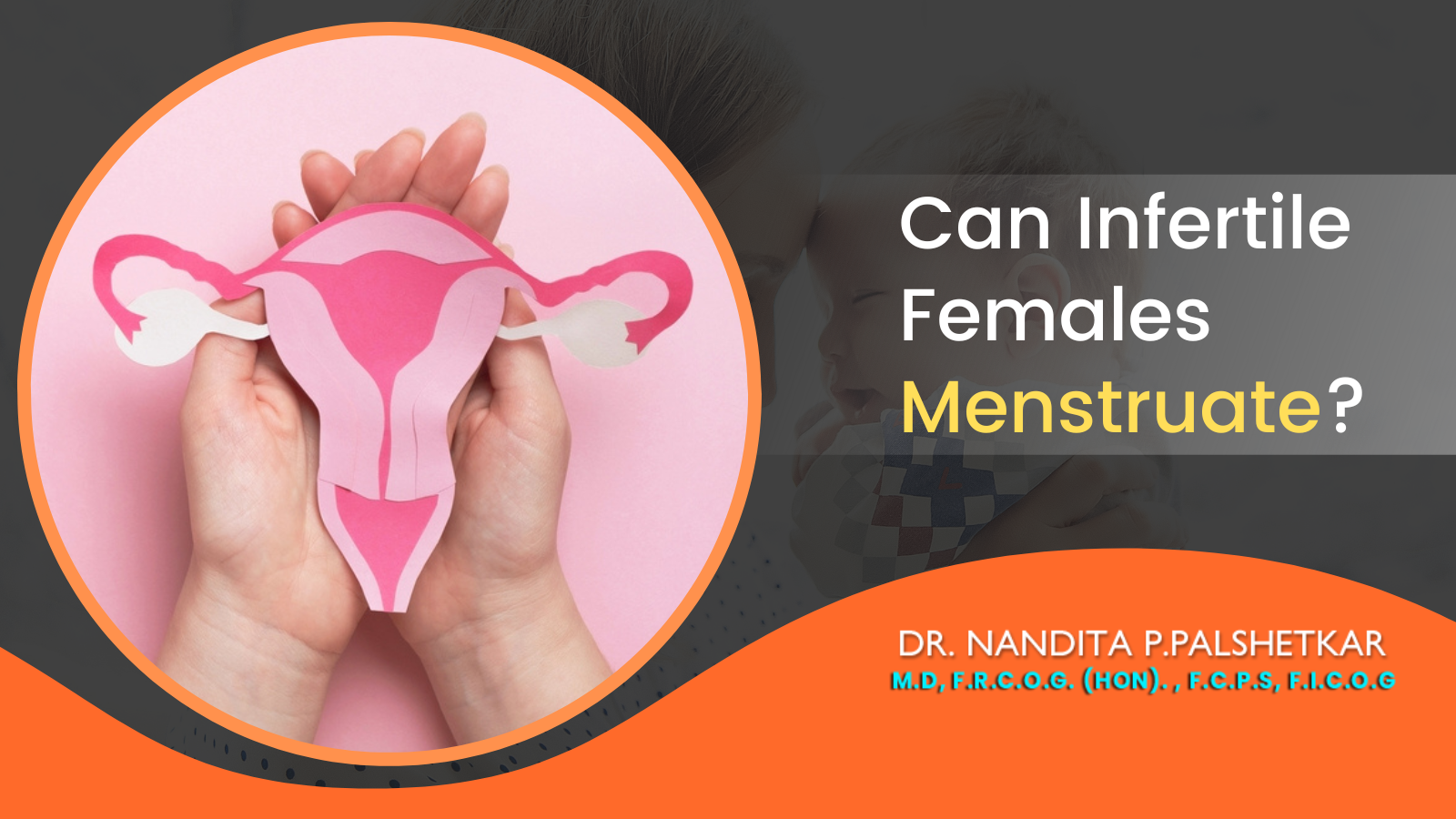

E-Brochure - Download Now!

The menstrual cycle is the body's way of preparing for pregnancy after ovulation, the release of a mature egg every month. Menstruation usually lasts 28 days, beginning with cramping, mood changes, bloating, fatigue, and breast tenderness. As the cycle progresses, hormonal changes regulate the release of eggs from the ovary and prepare the uterine lining to receive a fertilised egg (embryo). However, do you know what happens to this cycle in infertile women? Let's see.
An oft-asked question, there is no simple answer. Regular periods indicate that women are ovulating, which is essential if you want to conceive. Irregular periods, on the other hand, indicate problems in ovulating. However, there is a possibility of being infertile even when you have a period. Menstruation does not necessarily mean you can conceive, especially if your cycles are irregular. There are lots of menstrual disorders that can have an effect on your fertility.
The term "menstrual disorders" refers to issues that interfere with a woman's regular menstrual cycle. The irregular period symptoms could include excruciating cramps that occur during bleeding, very heavy bleeding, irregular bleeding, insufficient bleeding, or no bleeding at all.
Even though menstrual patterns vary greatly, women should seek medical assistance when their periods come less than 21 days apart or if they last more than three months apart since these may indicate ovulation problems, hereditary issues, clotting disorders, or pelvic issues.
If you are undergoing unnatural patterns of periods, you should consult one of the best gynecologists near you in Mumbai, Dr. Nandita P. Palshetkar.
Yes, women with irregular periods can become pregnant. However, the ability to get pregnant decreases significantly since ovulation becomes difficult to determine. The success rate of being able to conceive is around 30% for women with regular periods and reduces exponentially if periods are off by ten days or more.
Abnormal periods may potentially indicate anovulation. The cycle is called anovulatory when ovulation does not take place. Despite not being considered a sickness, studies reveal that persistent anovulation points to hormonal or pregnancy problems. The majority of the time, doctors recommend fertility medications or other treatments to enhance ovulation and control the period.
There are many reasons why you might not be able to become pregnant but still experience periods. For instance, it could be challenging to get pregnant if you have a chronic health condition like diabetes, asthma, high blood pressure, or rheumatoid arthritis.
You may have trouble conceiving yet still experience periods for a variety of other reasons, such as:
People frequently experience symptoms of infertility. Given that many people don't exhibit any overt signs of infertility until they attempt conception, this could be upsetting. Here are some warning indicators you should look out for:
After a year of trying unsuccessfully to conceive, a couple may learn they have a reproductive problem. Living a healthy lifestyle can, however, increase your likelihood of getting pregnant. Learn more about what you can do:
Consult a healthcare professional if you are having trouble conceiving. A fertility expert can help you determine how to increase your fertility and increase your chances of becoming pregnant. In most cases, couples are able to conceive through fertility treatments, surgery, or lifestyle changes.
For any questions, book an appointment or a free consultation with one of the best fertility specialists in Mumbai, Dr. Nandita P. Palshetkar, today! With three decades of experience pioneering Infertility and IVF treatment in India, she will help create the best treatment plan customized to your needs.